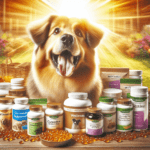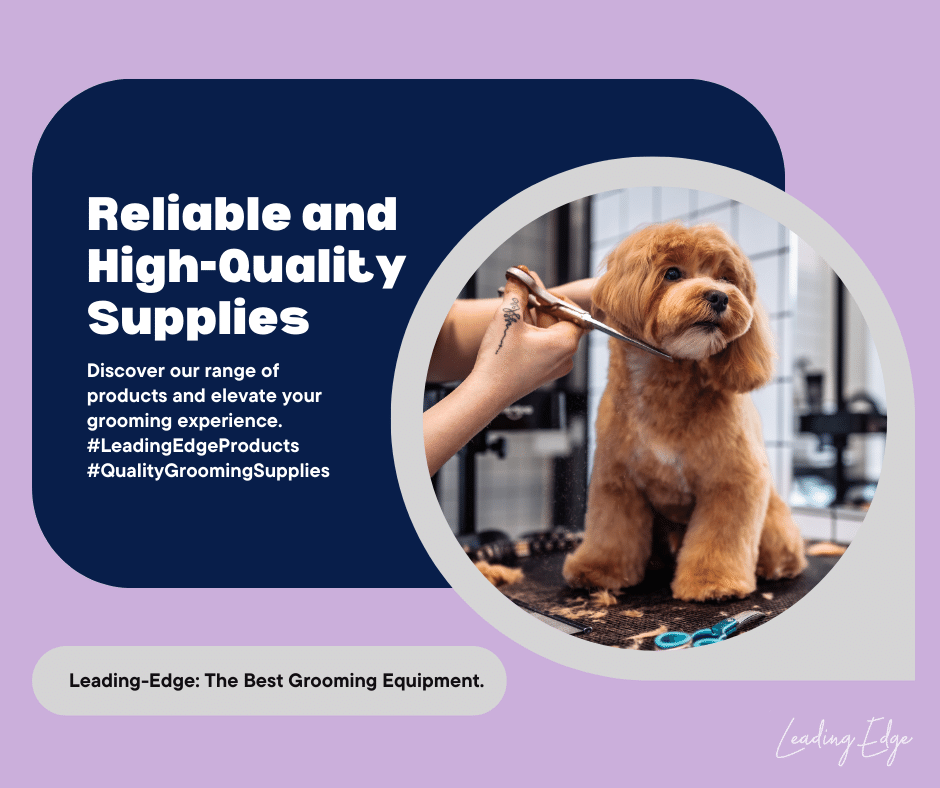
When choosing dog grooming products, you’ll want to consider a variety of factors to ensure your furry friend’s health and well-being. Start by consulting your veterinarian to determine any specific needs your dog may have based on their breed, age, or existing health conditions. Look for grooming products that are tailored to your dog’s unique requirements, such as those that support skin and coat health with natural ingredients like omega-3 fatty acids. Pay attention to the quality of the products by seeking those with the NASC quality seal and always opt for options that include essential nutrients to help maintain your dog’s overall health. Whether you have a young pup or an older dog, using grooming products designed for their age and specific health concerns can make a significant difference in their daily comfort and long-term wellness. Have you ever found yourself staring at an aisle full of dog grooming products and wondering, “What should I consider when choosing dog grooming products?” It can be quite overwhelming, especially when you want the best for your canine companion. Well, fear not! This guide is here to help you navigate the world of dog grooming products and make informed choices. Let’s break it down together.
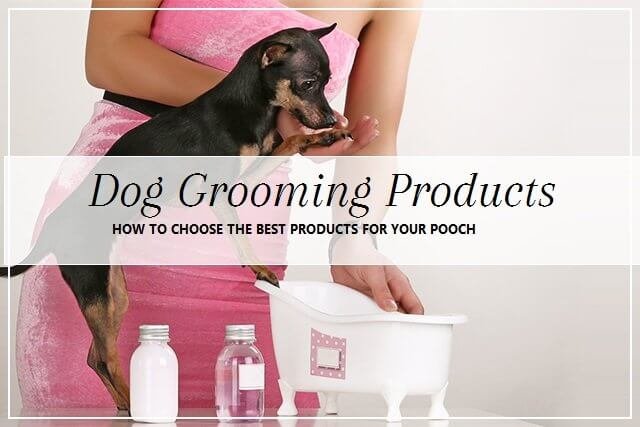
Understand Your Dog’s Needs
Breed-Specific Requirements
Different dog breeds have unique grooming needs. For instance, a Poodle requires frequent grooming due to its curly hair, whereas a Beagle’s short coat is low-maintenance. Researching your dog’s breed and its specific grooming requirements will set you on the right path.
Age and Health Considerations
Your dog’s age and health condition also play vital roles in choosing grooming products. Puppies, adult dogs, and senior dogs have different grooming needs. Older dogs might need gentler products due to more sensitive skin and joint health issues.
Types of Dog Grooming Products
Shampoos and Conditioners
There are various kinds of shampoos and conditioners tailored to meet specific needs like hydration, deodorizing, and flea control. Choose a product free from harsh chemicals that may irritate your dog’s skin.
Brushes and Combs
The type of brush or comb you need depends on your dog’s coat. Here’s a simple table to guide you:
| Coat Type | Recommended Brush/Comb |
|---|---|
| Short Hair | Slicker Brush, Bristle Brush |
| Medium Hair | Pin Brush, Undercoat Rake |
| Long Hair | Slicker Brush, Detangling Comb |
| Curly Hair | Wire Pin Brush, Dematting Comb |
Nail Clippers
Keeping your dog’s nails trimmed is vital for their comfort and overall health. Opt for high-quality clippers to ensure a clean cut, and consider grinders for dogs that are sensitive to clipping.
Ear and Eye Cleaners
Regular ear and eye care prevent infections. Look for gentle formulations designed specifically for dogs to keep these sensitive areas clean.
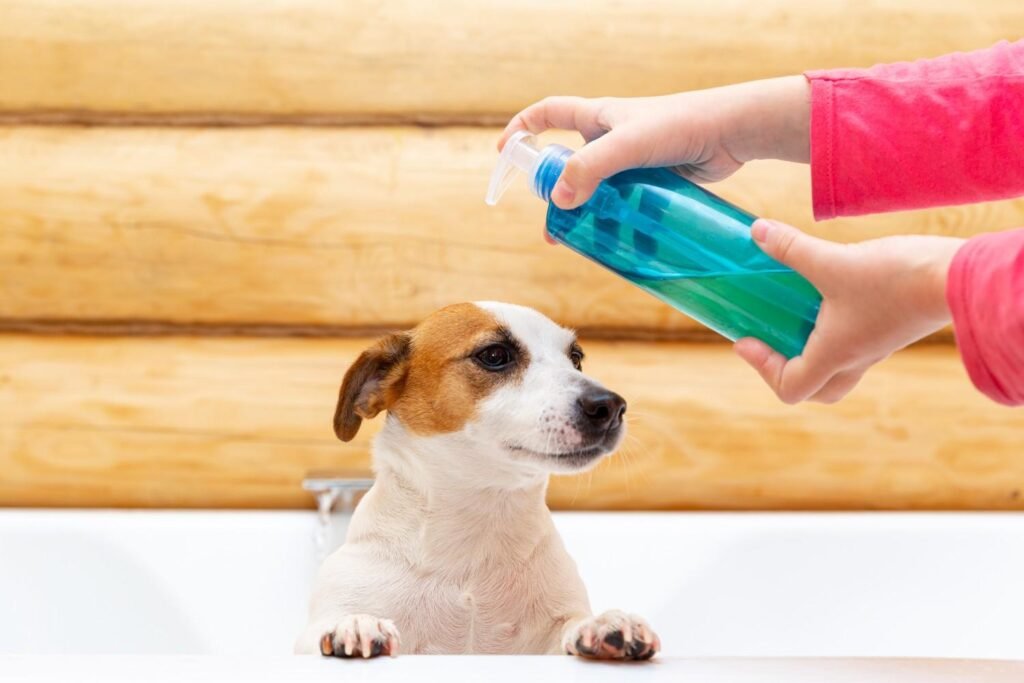
Health and Well-being
The Role of Natural Remedies
Natural dog remedies like aloe vera, tea tree oil, and oatmeal can soothe irritation and promote healthy skin. Always consult your vet before trying new products.
Vitamins and Supplements
Vitamins and supplements can be beneficial for your dog’s coat and skin health. Omega-3 fatty acids, glucosamine, and chondroitin are popular options to support joint health and maintain a shiny coat.
Dental Health
Good oral hygiene is crucial. Dental health products range from toothbrushes and toothpaste to chews that help clean your dog’s teeth. Maintaining dental hygiene prevents tartar buildup and oral diseases.
Consulting Your Veterinarian
Regular Check-ups
Regular vet visits are essential for your dog’s health. Your veterinarian can provide personalized recommendations based on your pet’s specific needs.
Specialized Products
For dogs with specific health issues, such as allergies or skin conditions, your vet may recommend specialized grooming products. Always follow your vet’s advice to avoid complications.

Popular Ingredients to Look For
Aloe Vera and Oatmeal
These are common in soothing shampoos and conditioners. They can help alleviate dry, itchy skin and promote healing.
Coconut Oil
Coconut oil is fantastic for moisturizing your dog’s skin and coat. It also has antibacterial properties, making it a great ingredient in grooming products.
Essential Oils
Lavender, chamomile, and eucalyptus oils offer calming effects and can help repel pests. Make sure any essential oils in products are safe for canine use.
Probiotics
Probiotics are not just for internal health but also work wonders for skin health. They help maintain a healthy balance of bacteria, reducing the risk of skin infections.
Safety and Quality Assurance
NASC Quality Seal
Look for products with the National Animal Supplement Council (NASC) quality seal. This indicates the product meets high standards of quality and safety.
Avoid Harmful Ingredients
Be wary of products containing sulfates, parabens, and artificial fragrances. These can be harsh on your dog’s skin and lead to irritation or allergic reactions.
Patch Testing
Before using a new product, perform a patch test. Apply a small amount to a less visible area and observe for any adverse reactions.
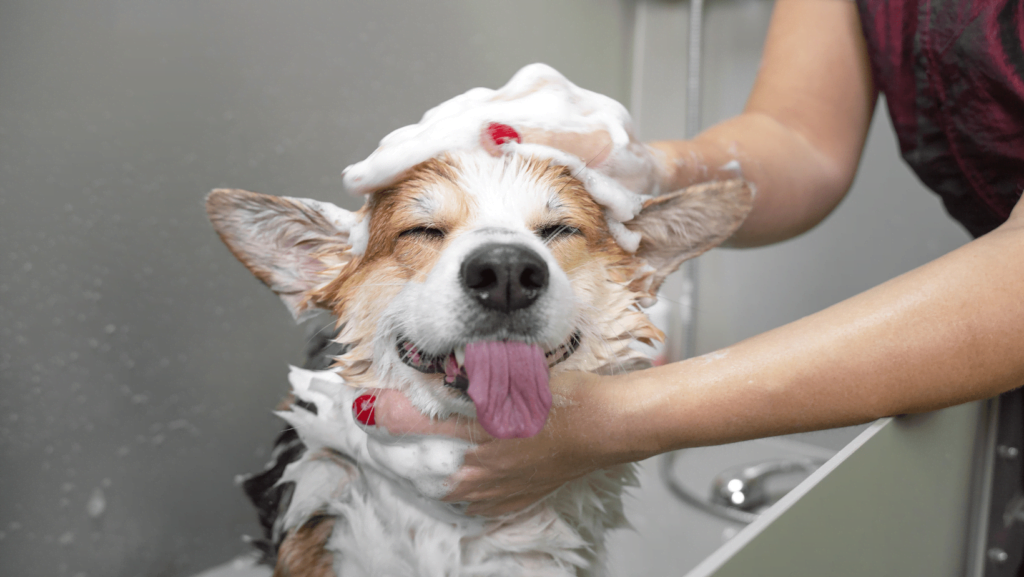
How to Choose the Right Diet
Complete and Balanced Diet
A balanced diet is crucial for maintaining your dog’s overall health, including their skin and coat. Consult with your vet to select the best diet tailored to your dog’s needs.
Dietary Supplements
Supplements can bridge nutritional gaps. Omega-3 fatty acids, glucosamine, and chondroitin are excellent additions to your dog’s diet to support healthy joints and skin.
Probiotic Supplements
These supplements promote a healthy gut, which in turn supports overall health and well-being, including a healthy coat.
Home Grooming Tips
Regular Brushing
Brushing your dog regularly helps distribute natural oils, promoting a shiny coat. It also reduces shedding and helps you bond with your pet.
Bathing
How often you should bathe your dog depends on their breed, lifestyle, and skin condition. Generally, a bath every four to six weeks is sufficient to keep their skin healthy.
Trimming
Regularly trim hair around their eyes, ears, and paws to prevent matting and infections. Use grooming scissors for better precision.
Nail Care
Trim your dog’s nails every few weeks to prevent overgrowth, which can lead to discomfort and walking issues. If you’re unsure, your vet or a professional groomer can show you how.
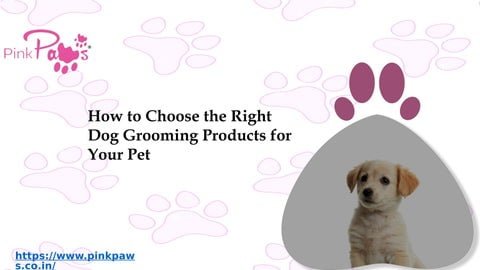
Professional Grooming Services
When to Consider a Professional Groomer
If grooming your dog at home becomes too challenging, professional groomers have the expertise and tools to handle even the most difficult tasks.
Choosing the Right Groomer
Look for groomers with good reviews or recommendations from other pet owners. Ensure they have experience with your dog’s breed and are certified by reputable organizations.
Regular Grooming Sessions
Regular grooming sessions help maintain your dog’s appearance and health. Establish a grooming schedule based on your dog’s needs, which your groomer can help you set up.
Conclusion
Choosing the right dog grooming products ultimately comes down to understanding your dog’s unique needs and consulting with trusted veterinary health experts. By prioritizing quality and safety, and considering natural ingredients and tailored grooming tools, you can keep your furry friend healthy and happy.
Remember, your dog’s grooming routine is an essential part of their overall well-being. Not only does it keep them looking their best, but it also contributes to their health, comfort, and happiness.
Feel free to share your experiences or ask questions in the comments below. Here’s to healthy, happy grooming sessions with your canine companion!




